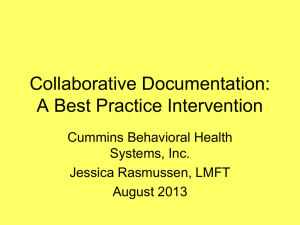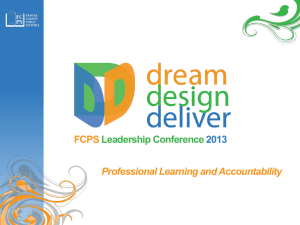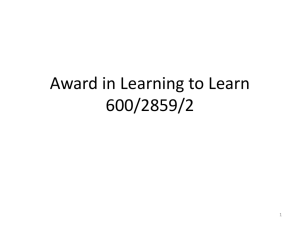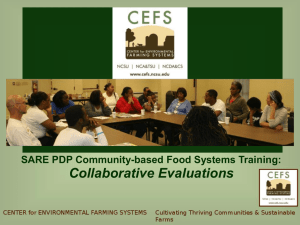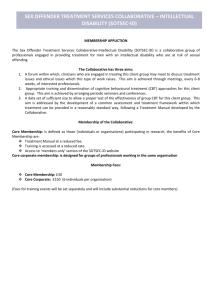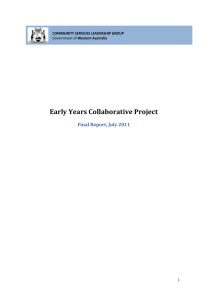track description
advertisement
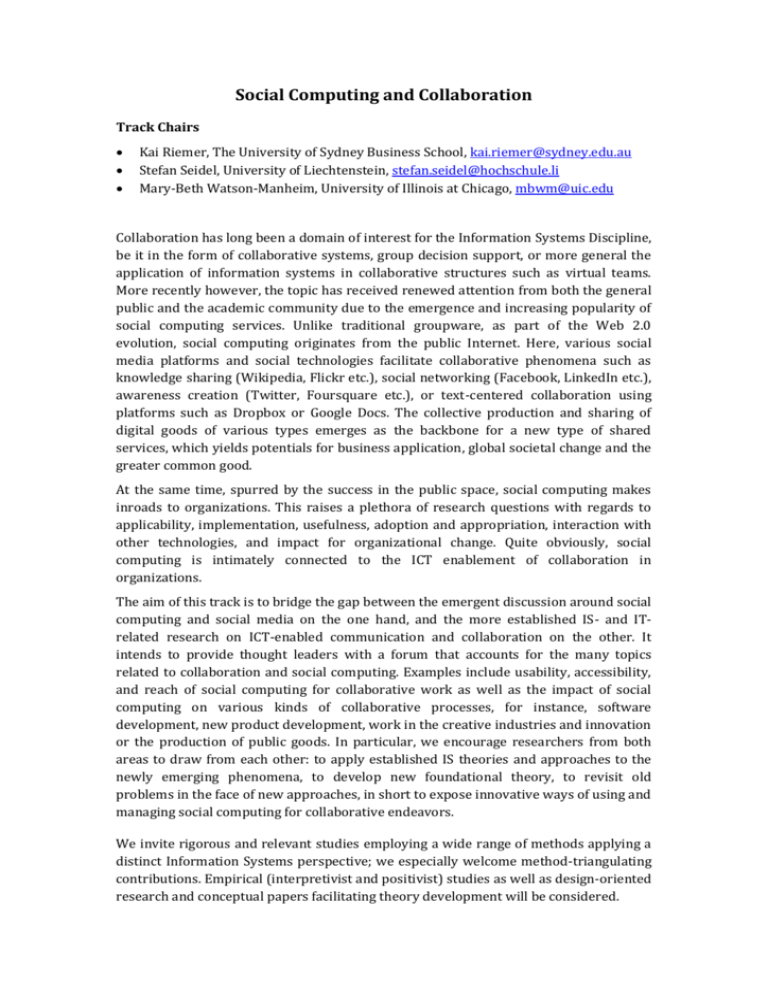
Social Computing and Collaboration Track Chairs Kai Riemer, The University of Sydney Business School, kai.riemer@sydney.edu.au Stefan Seidel, University of Liechtenstein, stefan.seidel@hochschule.li Mary-Beth Watson-Manheim, University of Illinois at Chicago, mbwm@uic.edu Collaboration has long been a domain of interest for the Information Systems Discipline, be it in the form of collaborative systems, group decision support, or more general the application of information systems in collaborative structures such as virtual teams. More recently however, the topic has received renewed attention from both the general public and the academic community due to the emergence and increasing popularity of social computing services. Unlike traditional groupware, as part of the Web 2.0 evolution, social computing originates from the public Internet. Here, various social media platforms and social technologies facilitate collaborative phenomena such as knowledge sharing (Wikipedia, Flickr etc.), social networking (Facebook, LinkedIn etc.), awareness creation (Twitter, Foursquare etc.), or text-centered collaboration using platforms such as Dropbox or Google Docs. The collective production and sharing of digital goods of various types emerges as the backbone for a new type of shared services, which yields potentials for business application, global societal change and the greater common good. At the same time, spurred by the success in the public space, social computing makes inroads to organizations. This raises a plethora of research questions with regards to applicability, implementation, usefulness, adoption and appropriation, interaction with other technologies, and impact for organizational change. Quite obviously, social computing is intimately connected to the ICT enablement of collaboration in organizations. The aim of this track is to bridge the gap between the emergent discussion around social computing and social media on the one hand, and the more established IS- and ITrelated research on ICT-enabled communication and collaboration on the other. It intends to provide thought leaders with a forum that accounts for the many topics related to collaboration and social computing. Examples include usability, accessibility, and reach of social computing for collaborative work as well as the impact of social computing on various kinds of collaborative processes, for instance, software development, new product development, work in the creative industries and innovation or the production of public goods. In particular, we encourage researchers from both areas to draw from each other: to apply established IS theories and approaches to the newly emerging phenomena, to develop new foundational theory, to revisit old problems in the face of new approaches, in short to expose innovative ways of using and managing social computing for collaborative endeavors. We invite rigorous and relevant studies employing a wide range of methods applying a distinct Information Systems perspective; we especially welcome method-triangulating contributions. Empirical (interpretivist and positivist) studies as well as design-oriented research and conceptual papers facilitating theory development will be considered. List of Topics - - Exploring the applicability of IS theory for explaining social media phenomena Exploring the impact of social computing on creative work and innovation The collaborative production of public goods for common good and public welfare Investigating the role of collaborative processes in popular social media phenomena (e.g. Crowdsourcing, Social networking, Social Virtual Worlds, Wikipedia) Enterprise 2.0 - Enterprise application of social computing technologies (e.g. microblogging, wikis, social network platforms) Design and use of social computing technologies to support collaborative work New approaches to studying collaboration inspired by social computing phenomena Rigorous case studies providing rich insight into collaboration in and through social computing Exploring appropriation and reinterpretation of social media as open platform technologies in organizational contexts Application of social computing services in established collaboration contexts such as Strategic Alliances, Business networks, regional clusters, Virtual Organisations etc. The mobile dimension of social computing in groups and collaborative processes Associate Editors Robinson Aschoff (University of Zurich, Switzerland) Steffen Budweg (University Duisburg-Essen, Germany) Angelika Bullinger-Hoffmann (University of Erlangen-Nuremberg, Germany) Lois Burgess (University of Wollongong, Australia) Jennifer Gibbs (Rutgers University, NJ USA) Asif Gill (The University of Sydney, Australia) Marie Griffiths (University of Salford, UK) Russell Haines (Old Dominion University, Fairfax, USA) Remko Helms (Utrecht University, Netherlands) James Howison (Carnegie Mellon School, USA) Sanjeev Jha (University of New Hampshire, USA) Stefan Klein (The University of Münster, Germany) Mathias Klier (Leopold-Franzens-University of Innsbruck, Austria) Ksenia Koroleva (Humboldt University Berlin, Germany) Hanna Krasnova (Humboldt University Berlin, Germany) Anders Larsson (Uppsala University, Sweden) Chei Sian Lee (Nanyang Technological University, Singapore) Stephan Lukosch (Delft University of Technology, Netherlands) Anastasia Papazafeiropoulou (Brunel University, UK) Alexander Richter (Bundeswehr University Munich, Germany) Ulrike Schulze (Southern Methodist University, USA) Paul Scifleet (The University of Sydney, Australia) Alexander Simons (University of Liechtenstein) Stefan Stieglitz (The University of Münster, Germany) Alexander Stocker (JOANNEUM RESEARCH, Austria) Matthias Trier (University of Amsterdam, Netherlands) Rajesh Vasa (Swinburne University of Technology, Australia) Pirkko Walden (Abo Akademi University, Finland) Eoin Whelan (National University of Ireland, Ireland) Axel Winkelmann (University of Muenster, Germany) Gamel Wiredu (Ghana Institute of Management and Public Administration (GIMPA), Accra, Ghana) Chen Ye (Purdue University Calumet, USA)

